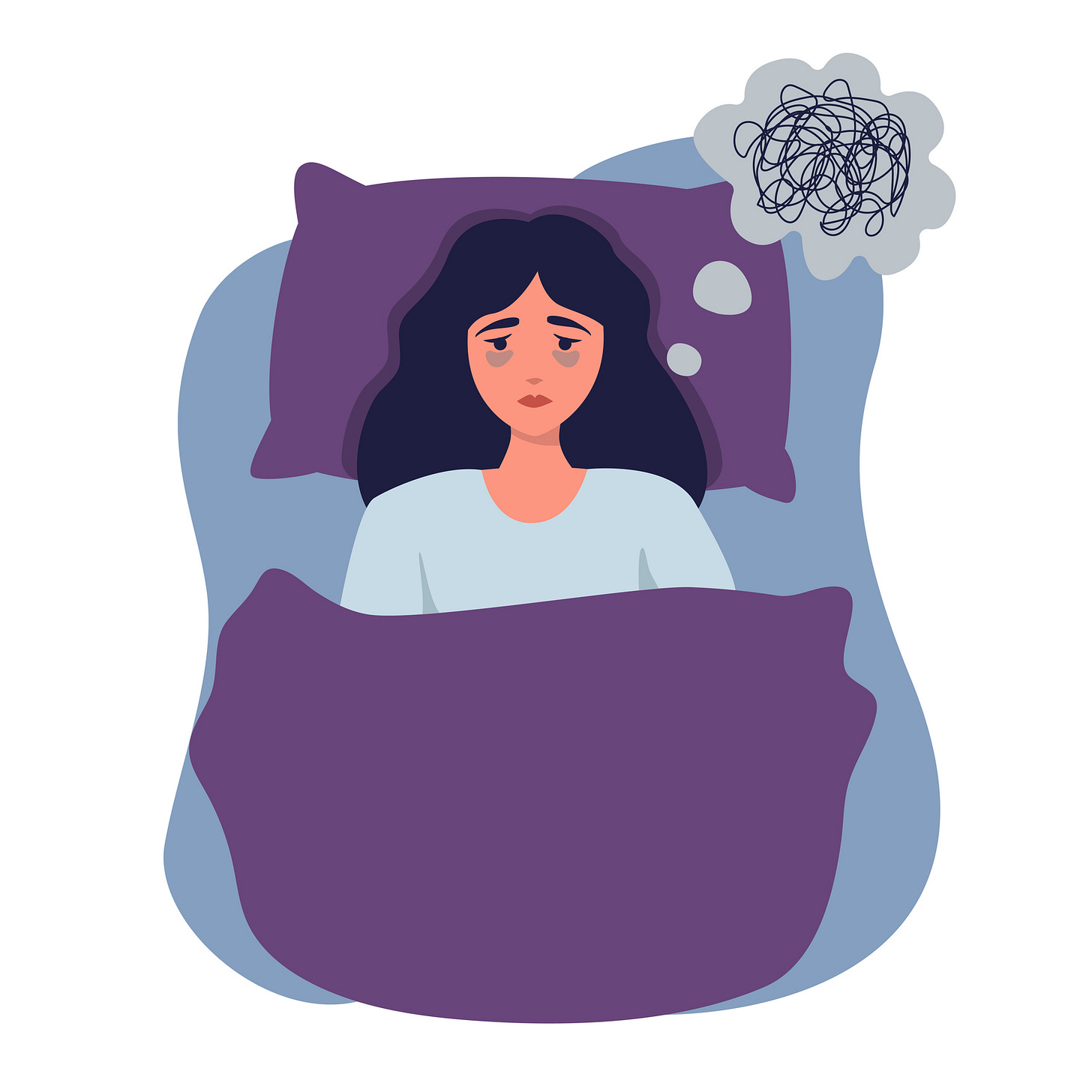Sleepless in Perimenopause
Progesterone for Sleep: Miracle, Myth, or Misunderstood?
It’s not uncommon to hear that progesterone is great or amazing or some other superlative for spectacular sleep. But how good is the data?
This was raised at the 2024 Menopause Society meeting, and my take away from the speaker was that maybe progesterone isn’t as good as we thought. It also wasn’t listed as a medication option in the slide of the recommended medications for insomnia (see below).
I checked the source of this information, Clinical Practice Guideline for the Pharmacologic Treatment of Chronic Insomnia in Adults: An American Academy of Sleep Medicine Clinical Practice Guideline in the Journal of Clinical Sleep Medicine, and the word progesterone isn’t mentioned once. The authors did not ignore menopause as medications that have been studied for sleep for women in perimenopause and menopause were mentioned. I will paraphrase the authors here, not recommending a medication doesn’t necessarily mean that the medication is ineffective, it may also mean that it hasn’t been adequately studied in a way that allows for rigorous assessment of its effectiveness. Many medications for sleep in this article didn’t match up well with the strict criteria used in this paper, hence the “weak evidence for” in the image above.
After the Menopause Society meeting last year, I kept saying to myself, one day I need to look into progesterone for sleep in greater detail. Well, “one day” has arrived!
What is Insomnia?
Insomnia is a sleep disorder. It is one (or two or all) of the following:
Difficulty falling asleep
Difficulty maintaining sleep
Early morning awakening
The symptoms must have been present at least 3 times a week for > 3 months and the sleep issues are causing distress or difficulty functioning throughout the day. In addition, sleep issues can’t be due to medication, alcohol, medical conditions or another sleep disorder (such as sleep apnea or restless leg syndrome).
The Scope of the Problem in Perimenopause and Menopause
About 40-60% of women in perimenopause and early menopause report difficulties sleeping and lack of sleep is among the most common concerns women have in perimenopause/menopause. Up to 26% of women in perimenopause may have an insomnia disorder. Overall, insomnia is more common among women (20%) versus (14%).
One issue with sleep and perimenopause/menopause is vasomotor symptoms, and how much do they contribute? One study specifically looked at women in perimenopause, and the investigators compared women who reported a new onset of difficulty sleeping with another group without those concerns, and the women were matched for age and stage of perimenopause. Among those with a new onset of a sleep disorder, 24% reported difficulty falling asleep, 92% staying asleep, and 61% had early morning awakening.
The women with sleep difficulties were sleeping an average of 6 hours and 4 minutes a night, and 47% were sleeping less than 6 hours, whereas 9% of the women who reported no sleep issues were sleeping for less than 6 hours. Interestingly, women were more likely to have the most disrupted sleep during their luteal phase. In this study, hot flashes/night sweats were a major contributor to disrupted sleep.
The Case for Progesterone
Preclinical data (meaning research that looks at progesterone in a lab, animal studies, and studies that look at how progesterone is metabolized) suggests that progesterone can be sedating. The hypothesis is that progesterone metabolites stimulate GABA-A receptors, which produces sedation and decreases anxiety. In fact, many general anesthetics work via GABA-A receptors. Stimulation of GABA-A is also the mechanism for benzodiazepines, which are the class of medications that include diazepam (Valium) and lorazepam (Ativan).
This is interesting, considering a couple of studies suggest that women tend to have more issues sleeping during their luteal phase, which is when they are producing progesterone. It could be that in perimenopause progesterone levels are more erratic, or other hormonal changes are affecting how the brain responds to progesterone or its metabolites. There are lots of unanswered questions.
While the basic science is being sorted out, for us to make recommendations, we need studies. And as mentioned earlier, not all data looking at medications for sleep (in general, meaning not menopause specific) is extremely robust. While there are several clinical trials looking at progesterone for sleep, they vary in design, and some women
Keep reading with a 7-day free trial
Subscribe to The Vajenda to keep reading this post and get 7 days of free access to the full post archives.





